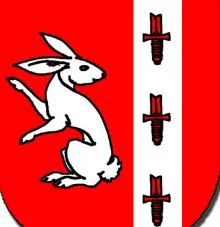I love shield-toads! 🐢
I’mma be honest, English has no business making fun of any other language. English is not a language, it’s three languages standing on eachother’s shoulders in a trenchcoat.
Heh. In this case I am making fun of my own language, though.
Ich mag es.
Danke, wenigstens einer. 😘
Theres one big difference between German and English. German allows you to just take multiple words and pack them into one word. This is a
bugfeature English does not have(or at least not to this extend). That’s also the reason why its sometimes very hard to translate some gean words because you have to split them up and then translate them individually.One Word you mentioned showed nicely what you missed here: Plain
Originally it was called an aeroplane. This could be translated with “flat thing in the air”. Which is exactly as ridiculous as your other examples in German. The difference is that Germans don’t mind complicated long words where English does so they just drop the part they don’t like.
Oh Germans do drop parts they don’t like. For example, they drop the Gute- from Gutemorgen.
No texactly. I drop the “Wassn scheiß”
Guten Morgen ist ein Oxymoron!
Oxymoron is a funny word. Like a moron, but now improved with active oxygen for stronger cleaning!
Me laughing at Germans for calling hospitals “sick houses”.
Me realizing hospitals are called “hurty places” in my native language.
It’s not a sick house. It’s a house for sick people.
It’s sick house for some other languages too.
the thing about compound words is that they become a new word and people usually don’t think about them by breaking them up so they don’t sound ridiculous. if another language has a dedicated word for it, comparing them with the direct translation of the broken up compound word makes a funny comparison.
if you’d like to break up some English compound words to see how they might sound weird or basic in other languages here are some examples:
- arm chair
- arm pit
- blue print
- cup cake
- dead line
- eye lash
- fire fighter
- fire man
- fire works
- home sick
- horse shoe
- lip stick
- make up
- news paper
- pass word
- pine apple
- pot hole
- work place
be cause
hedge hog
Let’s see some of them are their own words in our language. Blueprint is similar with it being combined from 2 words. Firework (fire thrower) and homesick (home sad) and newspaper (time write) are in the same boat. Pothole and workplace are 2 word phrases however. Road hole and working place.
I’m sure you can find a lot of parallels in Europe since English shares a lot with Germanic and Latin languages but what I mean is any language could easily have a single dedicated word for it and these would relatively sound funny.
for example you could imagine a language having “extinguisher” as a job title, which makes sense, but then you’d say “in English they call extinguishers ‘people who fight fire’ like they’re fucking boxing isn’t that funny”
but also I don’t know maybe it’s because I’m fascinated by language I don’t actually think it’s funny. I think sick people house makes a lot of sense. much more than hospital to be honest, which means guest house, which is more appropriate for a hotel, which shares etymology with hospital!
I guess you can but I am slavic so not really many paralels there. But yeah the german compound words make a lot of sense.
Because it took me way too long: Beender=Terminator
Beender Beending Rodriguez
(there’s an unwritten glottal stop between those two ee’s, for anyone wondering)
Childless but many of my friends have kids and seeing that top panel… Just… lol.
“this is a tool, not a toy”
How many times have I heard that said, or even said it myself, to children.
Your point being?
Isn’t English the amalgamation of like 5 different languages and if everything were broken down like this, English would sound just as ridiculous?
There is a form of English called Anglish which tries to remove all non-germanic words, I think some examples are wordbook for dictionary, becleft for atom, sourstuff for oxygen and birdlore for orinthology
I think every language probably sounds silly if transliterated into another language
It’s not a transliteration, it’s a direct translation. Transliteration is the conversion of one script into another and (Modern) English and German use the same script based on Latin. Transliteration would be дружба - druzhba.
By the way, in many German online communities, it’s a meme to take English expressions and directly translate them and is called Zangendeutsch. Just go to any of the ich_iel communities here and you can see it :)
You’ve clearly never heard of Torpenhow Hill, which translating all to English, means Hill Hill Hill Hill.
a language would sound the same when transliterated to another language
Eh, not totally. Some languages have phonemes that are completely absent in other languages, and some phonemes (especially vowels, though sometimes consonants, eg: “r”) are different enough that a transliteration can never do them justice. Although, I guess transliterating into the international phonetic alphabet would do the trick…
I only did three months of research for this comic. Guess it still wasn’t enough. Verdammte Bullenscheiße!
Common rookie mistake everyone knows you need four months
Do 3 months of research on English. I’m sure the comic will be good too :)
The Anglo-Saxons loved compound words. The vocabulary of Old English (and just before that) was very small, so putting words together was necessary for building more complex concepts.
English, a Germanic tongue carried into Britain by the Angles, Saxons, Jutes, and Frisians, has been influenced by:
- Celtic languages
- A tiny bit of Pictish
- Old Norse
- Latin
- Greek
- Norman Old French (a dialect somewhat distinct from the rest of Frankia)
- Plenty of other things
My favorite English compound word is bookkeeper. 3 consecutive double letters.
My favourite stop on the London Underground is Knightsbridge - 6 consecutive consonants.
I once saw on an italian restaurant menu the word Taramasalata. I am not sure why but it was very amusing to me that every second letter was ‘a’
We can do that with the first sentence and flip it into German, replacing “lighter” with “fireworks”. We get:
“Sie dürfen die Feuerarbeiten nicht mit in die Luftebene nehmen.”
A lot of German speaking communities online do translate English loanwords into German words, often with the intention to create this funny effect.
Coincidentally, I just watched a video on that sort of thing the other day that was pretty neat: Anglish: English without the ‘foreign’ bits
I’ve loved Anglish for a long time, but my favorite example is Uncleftish Beholding a scientific paper written in Anglish. “Stuff” turns out to be a pretty logical way to explain shit.
Close, English is the unholy amalgamation of 666 incomplete languages, forged in the bowels of the great vowl shift but incomplete as an affront to God and the eighth deadly sin.
English is a hilarious mess. The word “receite” originated from Latin but came to England through France at which point it had mutated to modern pronunciation as “recu”, so they shoved a few extra and silent letters in there and spelled it “receipt” to pretend they got it from Latin even though they kept pronouncing it more French.
I’m confused. The modern word in french is “reçu”, which is pronounced something like “ruhsue”. The English word is “receipt” but pronounced something like “ruhseet”. There’s no “ooh” sound in the original Latin, so it’s not just a matter of adding extra or silent letters in there, it’s a complete change to the vowel sounds, plus the re-addition of a ‘t’ sound.
I oversimplified a bit! Sorry!
Words always shift over time and borders. The words “recu” and “receive/receipt” are pretty close and used to be closer. To be more accurate it was “receite” when they adopted it from French. Compared to Latin “recepta” which has a hard P in it. So adding “P” from Latin to the spelling as “receipt” but leaving the pronunciation as Anglo-French “receite” was the most silly part.
Well, English is always silly with the various silent letters. The worst are the silent letters that nonetheless change the pronunciation of the non-silent letters nearby.
Like, I saw a place today named “something-valu”, with no “e” on the end. With no “e” it should really be pronounced “valoo”. Adding the “e” somehow changes it to “valyoo”. Rather than changing the vowel sound, it adds a consonant-like /j/ sound (IPA) to the start of that syllable.
At first I thought that in the last pannel the robot gives the child ‘soup for my family’
Needs more hand shoes.
German is weird in more ways, namely word ordering
Sie dürfen nicht ein Feuerzeug mit ins Flugzeug nehmen
You’re not allowed to a fire stuff with you in flight stuff bring
But all languages are weird. Here’s some french for you
qu’est-ce que c’est?
I don’t have the knowledge needed to translate this properly but it’s something like “wh’is-at what that is” (its the way they say “what is that”)
And Swedish, my native language
I eftermiddags åt jag jordgubbar. Nu ska jag äta middag.
This after middle day ate i soil old men. Now I’m going to eat middle day. (This afternoon I ate strawberrys. Now I’m going to eat dinner)
Given that Swedish is my native language I’d also like to inform you that the English word “smorgasbord” is completely ridiculous. It’s literally just the Swedish word “smörgåsdsbord” but without å and ö, so it’s pronounced completely wrong. The word smörgås is however also a bit weird, it literally means “butter goose”. So your English word smorgasbord means “butter goose table”. Also window means wind eye, it’s the old Swedish word “vindöga”
Wouldn’t it be
Now will I eat middle day
?
Yeah, that may be a better translation
No german would ever talk like that. Correct would be “Sie dürfen keine Feuerzeuge mit ins Flugzeug nehmen” (You are not allowed to bring lighters into the aircraft).
Thanks! My German isn’t that good. I’ve been studying it for four years but sometimes it feels like we’re getting nowhere.
I’ll try:
You allowed not one fire thing with into flight thing bring.
That would be: Sie dürfen nicht eins Feuerdings mit in
hineindas Flugdings hinein bringenThe hinein from ‘into’ is optional in German. Better would be:
You may no firegear with in the flightgear take.
German is weird in more ways, namely word ordering
Nope, germanic was first, you guys did it weird.
Btw,
Sie dürfen nicht ein Feuerzeug mit ins Flugzeug nehmen
that would be
You’re allowed not a fire tool with in flight tool bring
No?
Yes, that’s true
I like the art style!
I find medical terms are fun like that in their own right. A lot of them follow a similar structure with Greek/Latin pieces. Then others have fun origins depending on how we thought the body worked way back when
Thank you! Yeah, I find the translated medical terms exceptionally funny in German (though doctors will also use the latin terms a lot).
I’ve learned that
Hospital = Krankenhaus = Sick House
Ambulance = Krankenwagen = Sick Wagon
It actually makes sense.
English has “plaything”, which is kinda similar.
Fun fact the term Hospital while derived from hospitality is mutated for context due to the Knights Hospitallers. They built quite a few outposts that quickly became associated with medicine because pilgrims are stupid.
Krankenhaus - die Kranken (the sick persons from krank meaning sick) and das Haus (the house). A Krakenhaus could maybe be found at an aquarium as it’s a house of octopuses (release the kraken!). Octopuses are more commonly called Tintenfisch tho, which literally means ink fish.
Toy = Spielzeug = Play Stuff
English has “plaything”, which is kinda similar.














